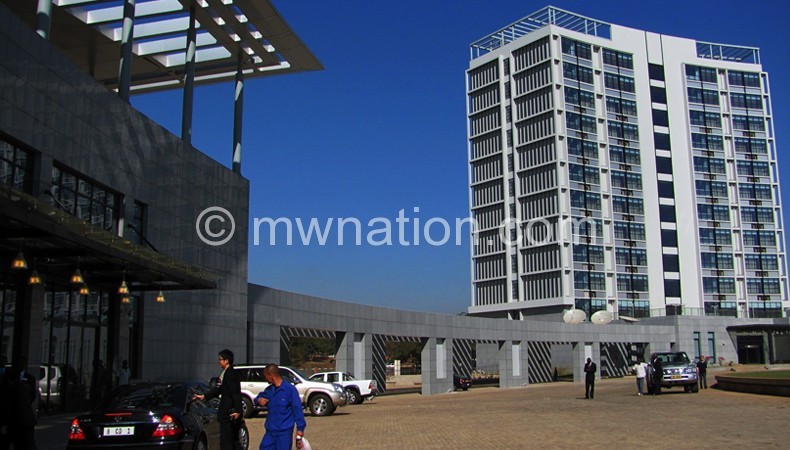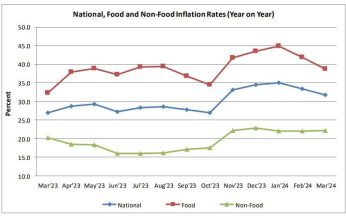Why Malawi, others get the short end of FDI
Foreign direct investment (FDI) has in all countries of the world been recognised as a critical catalyst to spur economic growth, especially for developing economies such as Malawi.
China and many other leading economies today have joined the elite club of the developed world on the back of it. Major development agencies promote and support the flow of FDI into the developing world, hoping that such flows will uplift the livelihood of many.

But many citizens of the developing world and, Malawi in particular, have cried foul over how FDI deals are fashioned out by those who represent them when crafting such pacts. They argue that the deals are shrouded in secrecy, smack corrupt acts and consequently Malawi and African countries get the short end of the stick in the deals.
The citizens argue that their representatives sell their countries’ assets off at pittance or offer excessive allowances like tax holidays or allow a whole entourage of foreign workers. These are legitimate concerns.
Given the magnitude and impact of FDIs on the wider economy, it is crucial that the expectations of the broad constituents and stakeholders be taken into account when framing such agreements.
Negotiation processes are usually complex, but barring the concerns cited, an expert negotiator blames the African governments themselves for their inability to examine basic negotiation principles.
Firstly, Malawi and African governments end up with such bad deals because the negotiators never critically explore the interests, both of their own and those of the investor counterpart. An expert negotiator, like an owl or a chameleon, should explore the deal 360 degrees by examining interest of both parties. In any deal, interests of parties are many and varied and they do not necessarily always conflict.
Take the case of Kayelekera Uranium Mine agreement, the country’s interests, among the not so obvious in the deal would include development of tourism in Karonga. The government and Paladin (Africa) Limited would, for instance, package a deal attracting Australian tourists to Karonga using the uranium deal as an anchor.
For sure Paladin Africa would be pleased to package such a deal which would appeal to its investor constituents back home. In this simple example, issues of environmental damage would unlikely arise.
Secondly, it is incumbent upon the parties to broaden options for the deal as wide as possible during the negotiation process. Unfortunately, most negotiators go into negotiations with a fixed single position such as earning mining rights, or foreign exchange, or a fixed price for the asset. This negotiation mindset is dangerous as the counterpart can easily take advantage of it to the detriment of the host country. But our representatives may find inventing options challenging because the experiences, expertise and expectations of the investor are profoundly different from those of the locals.
Furthermore, often times the negotiators want to conclude the deal in desperation, either because they want to fix a vexing economic problem such as acute foreign exchange shortages or want to please citizenry for some reason such as securing pending votes. In such a rush, the representatives never search for the best alternatives, both of their own and those of the counterpart, if the deal fails.
A professional negotiator seriously evaluates alternatives in case the deal falls wayside. Keeping uranium in the ground could be an alternative. It is evident that little attention was paid to evaluation of alternatives, looking at how badly the Kayelekela deal was packaged.
Again, inexperienced negotiators believe that solving a problem of the counterpart during the negotiation process or in the midst of the deal is not their responsibility. But good negotiators know that solving another party’s problem is part of their own problem.
This is because to reach an agreement that meets your own self-interest, you need to develop a solution which also appeals to the self-interest of the other. This is enlightened self-interest. Thus the country’s negotiators in the Kayelekela case would have done well to know that issues of financing, marketing and environmental protection that essentially are regarded as Paladin Africa’s problems, are also part of their own (our government) problem.
Lastly, the country’s negotiators fail to unlock value in many FDI agreements. Value can be unlocked in a deal by bringing in other constituents, such as international financiers, development agencies and brokers of outstanding repute. Value can also be unlocked by widening the dimension in scope and sequence to the deal.
You will be surprised how much value can be created for all parties to a deal if new players are brought into the game or a second and third dimensions are added to the deal.
Negotiation is a complex process and the authorities would do well to safeguard that those involved are skilful in it. n
*Alfred Joabe is a lecturer in the Faculty of Commerce at Catholic University of Malawi





